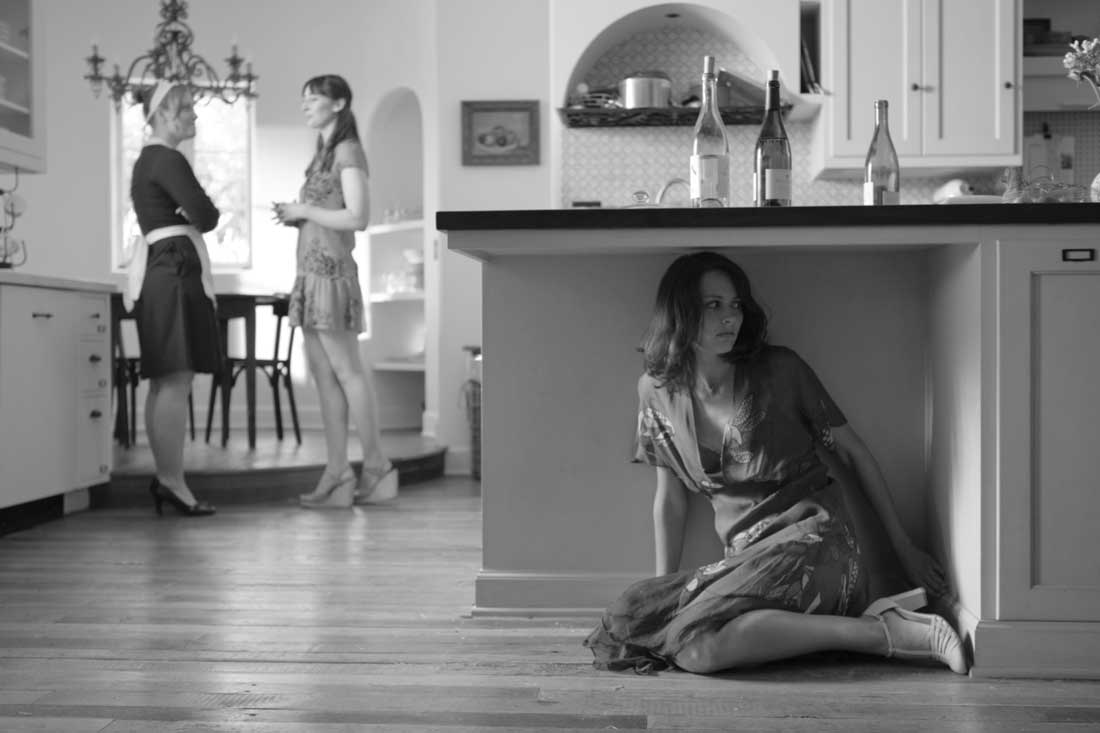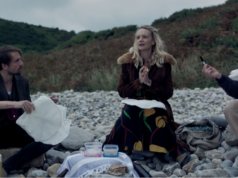The story instantly passed into legend among both comic book geeks and theater geeks: After wrapping shooting on The Avengers in 2011, Joss Whedon was supposed to go on a two-week vacation in Italy with his family. Instead, with his wife’s blessing, he spent those weeks at his home in Malibu, filming a black-and-white, low-budget, modern-dress adaptation of Shakespeare’s Much Ado About Nothing with a bunch of actors from his old TV shows. Don’t feel too bad for Mrs. Whedon, a.k.a. Kai Cole — as the architect who designed his house, she got a loving showcase for her work and a credit as the film’s producer.
As for the movie, it’ll inevitably inspire comparisons to Kenneth Branagh’s star-studded 1993 big-screen adaptation of the play. If that earlier film was a hearty beer that occasionally forced its good cheer on you, this one is a light wine that’s content to be its own pleasing self. (The liquor comparison is appropriate, since the characters in this movie drink an awful lot.) In any event, it’s the most delightful Shakespeare film we’ve had since Branagh’s 1990s heyday.
It begins with a wealthy lord named Leonato (Clark Gregg) holding up his smartphone and saying, “I learn in this letter that Don Pedro of Aragon is come this night to Messina.” While a young soldier under Don Pedro’s command named Claudio (Fran Kranz) woos Leonato’s beautiful daughter Hero (Jillian Morgese), the real intrigue comes when companion-in-arms Benedick (Alexis Denisof) reunites tetchily with his onetime hookup, Leonato’s niece Beatrice (Amy Acker).
The dewy Acker and the starchy Denisof played love interests on the TV show Angel, so it’s no wonder that they have a feel for each other’s rhythms. Angel didn’t call on them to do much physical comedy, but both actors display a great flair for it here, especially in the farcical scenes when everyone in the house conspires to trick Benedick and Beatrice into falling in love. Denisof holds up his end well, but the real star turn comes from the Dallas native Acker, whose winsome exterior gives way to an unsuspected toughness, especially during the wedding scene when a deceived Claudio humiliates Hero at the altar and Beatrice looks ready to take the groom’s head off.
That scene is exactly as appalling as it should be, which points up something important. Whedon’s TV shows (especially Buffy the Vampire Slayer) were always distinguished by his freakish ability to accommodate both rollicking humor and wrenching heartbreak in the same frame, and it’s this command of tone that comes to the fore here. The opulent setting, Jay Hunter’s glossy cinematography, and the smooth jazz score (composed by Whedon himself) set a breezy tone for the comedy in the early going, but the undercurrents of rage and retribution that surface later feel very real too. When Claudio is falsely informed of Hero’s death, his devastation is set off by the malapropism-laced interjections of Dogberry, Leonato’s intense, clueless, self-serious security chief. Somehow neither character feels out of place.
Dogberry is turned into a big ball of fun by Nathan Fillion, the star of TV’s Castle, who comes on late and almost strides away with the movie. The performance is typical of Whedon’s attention to his ensemble, with Gregg and Reed Diamond (as a florid, guitar-strumming Don Pedro) partnering well as the senior members of the house and Kranz making a nicely boyish, ill-at-ease Claudio. The newcomer Morgese can’t make Hero interesting, and Sean Maher can do little with the play’s motivation-free villain Don John, but these actors are stranded by Shakespeare rather than their director.
Whedon is such a towering figure in pop culture, it’s strange to think that this is only his third movie as a director. Yet purely on the evidence of this and The Avengers, he looks like a filmmaker of Soderberghian versatility. Perhaps he can carve out as brilliant a career on the big screen as he already has on the little one. Regardless, Much Ado About Nothing remains an exhilarating summer Shakespeare festival in itself at the multiplex.
[box_info]
Much Ado About Nothing
Starring Alexis Denisof and Amy Acker. Written and directed by Joss Whedon, based on William Shakespeare’s play. Rated PG-13. Now playing in Dallas.
[/box_info]












